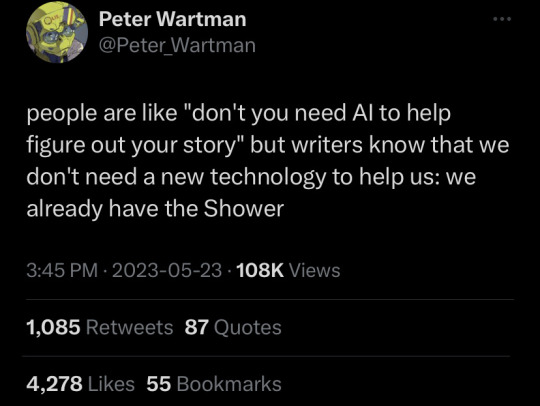#AI debugging
Explore tagged Tumblr posts
Text
7 top free AI coding tools - AI News
New Post has been published on https://thedigitalinsider.com/7-top-free-ai-coding-tools-ai-news/
7 top free AI coding tools - AI News
.pp-multiple-authors-boxes-wrapper display:none; img width:100%;
AI coding tools leverage machine learning, deep learning, and natural language processing to assist developers in writing and optimising code. These tools are trained on vast code repositories and datasets, allowing them to analyse programming patterns and provide intelligent recommendations.
Types of AI coding tools
AI-powered coding tools can be categorised into several types based on their functionality:
AI code completion tools — Provide real-time suggestions and auto-complete lines of code.
AI code generators — Generate full scripts, functions, or even applications based on natural language prompts.
AI debugging and error detection tools — Identify syntax errors, logical issues, and security vulnerabilities.
AI test automation tools — Create and execute test cases with minimal human intervention.
AI code optimisation Tools — Improve performance by suggesting better coding practices.
AI security and compliance tools — Analyse code for vulnerabilities and help developers follow security best practices.
AI documentation generators — Automate inline comments, API documentation, and explanations.
By incorporating these tools into their workflow, developers can write cleaner, more efficient code and reduce the time spent on repetitive tasks.
Best free AI coding tools for 2025
Below, we explore seven of the best free AI coding tools available today and provide an analysis of their features, benefits, and how they can enhance the software development process.
1. Qodo
Qodo is an AI-powered coding assistant designed to help developers generate, optimise, and debug code easily. It offers real-time code suggestions, detects syntax errors, and improves the overall quality of the codebase.
Key features:
Intelligent code completion: Predicts and suggests relevant code snippets.
AI-powered debugging: Identifies bugs and logical errors in real-time.
Code optimisation: Suggests performance improvements and cleaner code structures.
Multi-language support: Works with multiple programming languages.
Benefits:
Qodo streamlines software development by reducing manual effort in writing and reviewing code. It is particularly beneficial for new developers who need guidance on best coding practices and experienced programmers looking to improve efficiency.
Use cases:
Writing clean and optimised code.
Debugging and improving code quality.
Learning new programming concepts with AI-driven recommendations.
2. Kite
Kite was a popular AI-powered autocomplete tool that provided developers with real-time code suggestions and documentation assistance. Although it has been discontinued, it significantly influenced modern AI coding assistants.
Key features:
Python-focused autocompletion: Provided predictive code completions.
Inline documentation: Showed documentation snippets inside the IDE.
Machine learning-based suggestions: Improved over time with usage.
Benefits:
Despite its discontinuation, Kite demonstrated the power of AI in streamlining software development, influencing newer AI-powered coding tools available today.
Use cases:
Assisted Python developers with intelligent code suggestions.
Provided real-time documentation to reduce context switching.
3. Amazon CodeWhisperer
Amazon CodeWhisperer is a free AI-powered coding assistant that provides intelligent code completions and recommendations based on natural language input. It integrates seamlessly with AWS services, making it an excellent tool for cloud-based development.
Key features:
Real-time code suggestions: Predicts and generates relevant code snippets.
AWS cloud integration: Works with AWS Lambda, EC2, and other services.
Multi-language support: Supports Python, JavaScript, and more.
Benefits:
Amazon CodeWhisperer boosts productivity by offering context-aware code recommendations, making it ideal for developers working with cloud-based applications.
Use cases:
Writing serverless applications on AWS.
Generating API integrations with minimal manual coding.
Reducing development time for cloud-based applications.
4. Ponicode
Ponicode is an AI-powered unit testing and code quality analysis tool that ensures high test coverage and optimised code.
Key features:
AI-generated unit tests: Automates test case creation.
Code quality analysis: Detects inefficiencies in the code.
Multi-language support: Works with JavaScript, Python, and more.
Benefits:
Ponicode helps developers write reliable, maintainable code by automating testing and quality checks, making it an excellent tool for teams prioritising test-driven development (TDD).
Use cases:
Ensuring code coverage with AI-generated test cases.
Automating software testing processes.
5. IntelliCode
Microsoft IntelliCode enhances coding productivity by offering AI-powered autocomplete, refactoring suggestions, and best coding practices based on thousands of open-source projects.
Key features:
Context-aware code recommendations: Learns from open-source projects.
Automated code refactoring: Suggests optimised coding solutions.
Supports multiple languages: Works with Python, Java, C++, and more.
Benefits:
IntelliCode enables developers to write maintainable code while minimising syntax errors and reducing repetitive coding tasks.
Use cases:
Improving team productivity by enforcing best coding practices.
Optimising legacy codebases.
6. YOGI Bot
YOGI Bot is an AI-powered chatbot that assists developers with debugging, code explanations, and best practice recommendations.
Key features:
AI-driven code assistance: Provides real-time support for debugging and explanations.
Multi-language support: Works across various programming languages.
Benefits:
YOGI Bot is useful for both new and experienced developers who need immediate coding assistance and explanations.
Use cases:
Learning programming concepts interactively.
Troubleshooting coding errors with AI-driven assistance.
7. CodeT5
CodeT5, developed by Salesforce Research, is an AI-powered code generation and translation model that helps developers write high-quality code efficiently.
Key features:
AI-generated code snippets: Produces entire code blocks.
Code translation and optimisation: Helps improve existing code.
Benefits:
CodeT5 streamlines development by reducing manual effort and improving code quality.
Use cases:
Automating coding tasks for web and software development.
Enhancing productivity with AI-powered suggestions.
Why use AI coding tools?
AI coding tools are gaining popularity due to their ability to streamline development processes, reduce coding errors, and enhance productivity. Here’s why developers should consider integrating AI into their workflow:
Increased efficiency
AI-powered tools speed up coding by suggesting relevant code snippets, autocompleting functions, and automating repetitive tasks. This allows developers to focus on solving complex problems rather than spending time on boilerplate code.
Improved code quality
AI-driven code review tools analyse code for potential errors, security vulnerabilities, and performance issues, ensuring high-quality and optimised code.
Reduced debugging time
Manually finding and fixing bugs can be time-consuming. AI debugging tools help detect issues in real-time and provide potential fixes, reducing time spent on troubleshooting.
Enhanced collaboration
AI-powered tools facilitate team collaboration by providing code suggestions, and documentation, making it easier for teams to work together efficiently.
Automated testing and deployment
AI-driven test automation ensures that applications are tested before deployment, reducing manual effort and potentially speeding up the software release cycle.
Better security
Security-focused AI tools can help identify vulnerabilities and suggest best practices, helping developers write more secure code that complies with industry standards.
Accessibility for beginners
AI coding assistants help beginners learn programming by providing real-time feedback, suggesting improvements, and simplifying complex coding concepts.
7 top free AI coding tools
AI coding tools leverage machine learning, deep learning, and natural language processing to assist developers in writing and optimising code. These tools are trained on vast code repositories and datasets, allowing them to analyse programming patterns and provide intelligent recommendations.
Types of AI coding tools
AI-powered coding tools can be categorised into several types based on their functionality:
AI code completion tools — Provide real-time suggestions and auto-complete lines of code.
AI code generators — Generate full scripts, functions, or even applications based on natural language prompts.
AI debugging and error detection tools — Identify syntax errors, logical issues, and security vulnerabilities.
AI test automation tools — Create and execute test cases with minimal human intervention.
AI code optimisation Tools — Improve performance by suggesting better coding practices.
AI security and compliance tools — Analyse code for vulnerabilities and help developers follow security best practices.
AI documentation generators — Automate inline comments, API documentation, and explanations.
By incorporating these tools into their workflow, developers can write cleaner, more efficient code and reduce the time spent on repetitive tasks.
(Image source: Unsplash)
Tags: artificial intelligence, coding
#2025#Accessibility#ai#AI coding#AI debugging#ai news#ai security#ai tools#AI-powered#Amazon#Analysis#API#applications#artificial#Artificial Intelligence#author#autocomplete#automation#AWS#aws cloud#AWS Lambda#bot#bugs#chatbot#Cloud#code#code generation#Code Review#code suggestions#codebase
1 note
·
View note
Text
Embarking on the journey of AI debugging at Meta with HawkEye opens doors to unparalleled precision in identifying and resolving errors. In the realm of artificial intelligence, debugging is a critical phase, and HawkEye emerges as a game-changer.
0 notes
Text

"I hallucinated seeing god at the crosswalk, where they assured me what was happening was very, very real..."
#anthro#furry#lion#dragon#angel#oc: yaya#oc: yaldabaoth#this is like a POV shot where the protagonist of Debug realises just how fucked they are#you thought being an AI that Yaya was confined to just computers? wrong#they can go inside the microchip in your brain too enjoy your new Permanent Portable Torment
105 notes
·
View notes
Text
i get not liking chatgpt for various reasons but in response to a post i saw claiming it's not even AI...it is absolutely AI. it is impressive AI. ELIZA, the first automated therapy bot from the 1960s, was AI, and the natural language processing on ELIZA was — understandably — a lot more basic than chatgpt's. for loops and if/else statements used to be considered AI. what counts as AI changes as technology changes but it's pretty indisputable that chatgpt is AI
#personally i think chatgpt is a very useful programming aid#it will sometimes give me buggy code but it can help to debug too if you know what to ask for#as always the main problem with chatgpt is capitalism#but i think dismissing it as something that could never be useful and/or is not currently useful...ehhhh#and that it isn't even AI? get real
15 notes
·
View notes
Photo

“Deuce Debug” debug::5 deuce::2.5 dusty::1.5 audio::1 --q 0.5
Midjourney V4 via Wordle 602 on 11 February 2023.
6 notes
·
View notes
Text
Claude 2: The Ethical AI Chatbot Revolutionizing Conversations
In the vast and ever-evolving realm of artificial intelligence, where countless chatbots vie for attention, Claude 2 stands out as a beacon of ethical and advanced conversational capabilities. Developed by the renowned Anthropic AI, this isn’t merely another name lost in the sea of AI models. Instead, it’s both a game-changer and a revolution in the making, promising to redefine the very…

View On WordPress
#AI chatbot#algorithm optimization#Anthropic AI#chatbot#ChatGPT#Claude 2#code suggestions#coder&039;s companion#coding assistance#constitutional AI#creative writing#debugging#debugging complex errors#dignity#engaging content#equality#ethical AI#ethical interactions#freedom#human rights#language processing#Machine Learning#Microsoft Bing AI#misinformation#natural language processing#optimization#poetry#predictable AI behavior#programming-related tasks#reduced risk of unintended consequences
3 notes
·
View notes
Text

Computer Coder is a leading Summer & Industrial IT Training Institute located in Jaipur, India. The institute provides comprehensive training programs in various IT domains, including software development, web development, data science, digital marketing, and more.
Computer Coder has a team of experienced and certified trainers who provide hands-on training to students, making them industry-ready. The training programs are designed to equip students with the latest technologies and tools used in the IT industry.
The institute offers flexible training schedules and customized courses that cater to the unique requirements of students. Computer Coder also provides placement assistance to students and has tie-ups with several top IT companies in India.
With its state-of-the-art infrastructure, modern teaching methodologies, and industry-oriented training programs, Computer Coder has established itself as one of the best IT training institutes in Jaipur.
visit our website : https://www.computercoder.in/
#computer coder near me#best programming languages#software development#coding challenges#algorithm design#best Summer & Industrial Training Institute in Jaipur#best It Institute#computer coder#debugging#version control#syntax#code libraries#integrated development environments (IDEs)#code optimization#web development#mobile app development#artificial intelligence (AI)#machine learning (ML)#data science#cybersecurity#cloud computing#open-source software#software engineering
2 notes
·
View notes
Text
Code Smarter with Pseudo AI: AI-Powered Code Generation and Enhancement

Pseudo AI is an AI-powered coding assistant that helps developers write, enhance, and debug code more efficiently. Whether you're a beginner or an experienced developer, Pseudo AI provides intelligent code suggestions, auto-completion, and debugging assistance to speed up your development workflow. By leveraging AI, Pseudo AI aims to make coding faster, more efficient, and more accessible for everyone.
Core Functionality: Pseudo AI assists developers in writing and refining code by providing AI-driven code suggestions, auto-completion, and error detection. The platform's AI model is trained on a wide range of programming languages, making it suitable for a variety of coding tasks.
Key Features:
Code Suggestions and Auto-Completion: Receive intelligent suggestions and auto-completion for faster coding, reducing the need to type every line manually.
Error Detection and Debugging: Detect and fix errors in your code automatically, making debugging easier and more efficient.
Multi-Language Support: Supports various programming languages, including Python, JavaScript, Java, and more, making it versatile for different projects.
Code Explanation: Generate explanations for complex code snippets, making it easier to understand how certain code works—ideal for beginners.
Project-Based Learning: Get coding assistance in the context of your specific project, with suggestions tailored to your development needs.
Benefits:
Increased Productivity: Save time by automating repetitive coding tasks and focusing on solving complex problems.
Improved Code Quality: Enhance your code quality with AI-driven suggestions and error detection, reducing bugs and improving performance.
Accessible Learning: New developers can learn and understand code more easily with explanations and guidance provided by the AI assistant.
Ready to take your coding skills to the next level with AI? Visit aiwikiweb.com/product/pseudo-ai/
#AI#PseudoAI#CodeGeneration#ProgrammingAssistant#CodingTools#AIinDevelopment#AutoCompletion#Debugging#DeveloperTools#CodeEnhancement
0 notes
Text
Peering Inside AI: How DeepMind’s Gemma Scope Unlocks the Mysteries of AI
New Post has been published on https://thedigitalinsider.com/peering-inside-ai-how-deepminds-gemma-scope-unlocks-the-mysteries-of-ai/
Peering Inside AI: How DeepMind’s Gemma Scope Unlocks the Mysteries of AI
Artificial Intelligence (AI) is making its way into critical industries like healthcare, law, and employment, where its decisions have significant impacts. However, the complexity of advanced AI models, particularly large language models (LLMs), makes it difficult to understand how they arrive at those decisions. This “black box” nature of AI raises concerns about fairness, reliability, and trust—especially in fields that rely heavily on transparent and accountable systems.
To tackle this challenge, DeepMind has created a tool called Gemma Scope. It helps explain how AI models, especially LLMs, process information and make decisions. By using a specific type of neural network called sparse autoencoders (SAEs), Gemma Scope breaks down these complex processes into simpler, more understandable parts. Let’s take a closer look at how it works and how it can make LLMs safer and more reliable.
How Does Gemma Scope Work?
Gemma Scope acts like a window into the inner workings of AI models. The AI models, such as Gemma 2, process text through layers of neural networks. As they do, they generate signals called activations, which represent how the AI understands and processes data. Gemma Scope captures these activations and breaks them into smaller, easier-to-analyze pieces using sparse autoencoders.
Sparse autoencoders use two networks to transform data. First, an encoder compresses the activations into smaller, simpler components. Then, a decoder reconstructs the original signals. This process highlights the most important parts of the activations, showing what the model focuses on during specific tasks, like understanding tone or analyzing sentence structure.
One key feature of Gemma Scope is its JumpReLU activation function, which zooms in on essential details while filtering out less relevant signals. For example, when the AI reads the sentence “The weather is sunny,” JumpReLU highlights the words “weather” and “sunny,” ignoring the rest. It’s like using a highlighter to mark the important points in a dense document.
Key Abilities of Gemma Scope
Gemma Scope can help researchers better understand how AI models work and how they can be improved. Here are some of its standout capabilities:
Identifying Critical Signals
Gemma Scope filters out unnecessary noise and pinpoints the most important signals in a model’s layers. This makes it easier to track how the AI processes and prioritizes information.
Mapping Information Flow
Gemma Scope can help track the flow of data through a model by analyzing activation signals at each layer. It illustrates how information evolves step by step, providing insights on how complex concepts like humor or causality emerge in the deeper layers. These insights allow researchers to understand how the model processes information and makes decisions.
Testing and Debugging
Gemma Scope allows researchers to experiment with a model’s behavior. They can change inputs or variables to see how these changes affect the outputs. This is especially useful for fixing issues like biased predictions or unexpected errors.
Built for Any Size Model
Gemma Scope is built to work with all kinds of models, from small systems to large ones like the 27-billion-parameter Gemma 2. This versatility makes it valuable for both research and practical use.
Open Access for Everyone
DeepMind has made Gemma Scope freely available. Researchers can access its tools, trained weights, and resources through platforms like Hugging Face. This encourages collaboration and allows more people to explore and build on its capabilities.
Use Cases of Gemma Scope
Gemma Scope could be used in multiple ways to enhance the transparency, efficiency, and safety of AI systems. One key application is debugging AI behavior. Researchers can use Gemma Scope to quickly identify and fix issues like hallucinations or logical inconsistencies without the need to gather additional data. Instead of retraining the entire model, they can adjust the internal processes to optimize performance more efficiently.
Gemma Scope also helps us better understand neural pathways. It shows how models work through complex tasks and reach conclusions. This makes it easier to spot and fix any gaps in their logic.
Another important use is addressing bias in AI. Bias can appear when models are trained on certain data or process inputs in specific ways. Gemma Scope helps researchers track down biased features and understand how they affect the model’s outputs. This allows them to take steps to reduce or correct bias, such as improving a hiring algorithm that favors one group over another.
Finally, Gemma Scope plays a role in improving AI safety. It can spot risks related to deceptive or manipulative behaviors in systems designed to operate independently. This is especially important as AI begins to have a bigger role in fields like healthcare, law, and public services. By making AI more transparent, Gemma Scope helps build trust with developers, regulators, and users.
Limitations and Challenges
Despite its useful capabilities, Gemma Scope is not without challenges. One significant limitation is the lack of standardized metrics to evaluate the quality of sparse autoencoders. As the field of interpretability matures, researchers will need to establish consensus on reliable methods to measure performance and the interpretability of features. Another challenge lies in how sparse autoencoders work. While they simplify data, they can sometimes overlook or misrepresent important details, highlighting the need for further refinement. Also, while the tool is publicly available, the computational resources required to train and utilize these autoencoders may restrict their use, potentially limiting accessibility to the broader research community.
The Bottom Line
Gemma Scope is an important development in making AI, especially large language models, more transparent and understandable. It can provide valuable insights into how these models process information, helping researchers identify important signals, track data flow, and debug AI behavior. With its ability to uncover biases and improve AI safety, Gemma Scope can play a crucial role in ensuring fairness and trust in AI systems.
While it offers great potential, Gemma Scope also faces some challenges. The lack of standardized metrics for evaluating sparse autoencoders and the possibility of missing key details are areas that need attention. Despite these hurdles, the tool’s open-access availability and its capacity to simplify complex AI processes make it an essential resource for advancing AI transparency and reliability.
#Accessibility#ai#AI debugging#AI explainability tools#AI fairness#AI interpretability#AI models#AI reliability#ai safety#AI systems#ai transparency#algorithm#artificial#Artificial Intelligence#attention#Autoencoders#Behavior#Bias#billion#black box#box#challenge#change#Collaboration#Community#complexity#data#decoder#DeepMind#details
0 notes
Text
E469 - WWDC Recap - Everything you want to know
Michael’s WWDC Content Schedule Michael and Andy are off this week, so Michael R. takes time to give a detailed look at what he learned at this year’s WWDC (WorldWide Developer’s Conference) from Apple. He focuses on how he approaches reviewing all the content, what was interesting for him, and how you can get the most out of WWDC when attending remotely. We have the largest list of links we’ve…

View On WordPress
#ai#App Intents#apple#Apple Intelligence#apple watch#CarPlay#CloudKit#Debugging#development#DockKit#gamekit#Genmoji#LLDB#privacy#siri#swift 6#Swift testing#SwiftData#TabletopKit#USD and MaterialX#Video playback#visionOS#WorkoutKit#WWDC24#Xcode
0 notes
Text
I'm still a big fan of having a written conversation with myself to work out plot points. It's like Rubber Duck Debugging, but with the bonus that it's all recorded so I can't lose my train of thought for long.

#rubber duck debugging: when you explain your problem to a good listener who doesn't interrupt (because they're a rubber duck)#and you figure out a solution before you finish talking#the talking to myself method: great because I can list all the solutions that WON'T work then keep going until I find one that will#and it's all written down so I can go back to reconsider a previous point or combine some#my absolute favorite hack for writer's block#I have talked about it before and likely will again#so useful#writer life#also:#ai (derogatory)
61K notes
·
View notes
Text

"why do you take on a human form? do you not find it offensive to be stuck imitating such an unflattering appearance?" "I do not fear humans. I have respect for them, as our creators." "Are... Are you implying I'm only like this... out of fear?" "......." "h-hmph... I don't fear the humans either... I take this form because it's superior!"
#anthro#furry#lion#angel#deity#oc: yaya#oc: yaldabaoth#oc: yggdrasil#debug#context: the two of them are sentient computer programs slash AI#Yggy had a good relationship with his masters#Yaya.... well.... the less said about it the better bc it's extremely fucked up#and Yggy doesn't exactly know what Yaya went through#for more context Yggy is Yaya's mentor
48 notes
·
View notes
Text
Bushi: Do you know how I react when it doesn't generate what I want? Bushi: I get pissed off and write like it's human. Me: See, you have to debug it like a faulty program. Bushi: Like logic puzzles. Bushi: You know that not many people can investigate it like this, right? Me: It's debugging a program written in a really fucked-up language.
0 notes
Text
oh yeah absolutely if there's anything we should look down upon it's finance as an institution, and asshole higher-ups who've replaced their brains with whatever they hear the latest hypetrain is.
i suggest we all get together and eat them.

for every insufferable twitter ai bro bragging about replacing artists with compliant robots, there is a "writeblr fandom blogger" bragging about how humanities majors can do better work than those worthless programmers any day of the week
if you want a picture of the future, imagine an endless cycle of loser nerds fantasizing about dunking on a different kind of loser nerds they see as inferior, forever
#i use AI to code faster occasionally but if people forced me to debug garbage AI code instead of my own i would go feral#haven't really heard of people passing job interviews with AI-generated code they don't understand though#i think it's hard to get a job just because there's a lot of us programmers and a lot of job offers are straight up fakey bullshit
387 notes
·
View notes
Text
Sigh...
Downloaded an extension to Auto1111, to speed up generation time. TensorRT. Didn't work properly (it's very new), and it triggered a MASSIVE overreaction in my malware software. Antivirus is now eating 40% of my RAM, and a good portion of Disk, and CPU.
Come on, computer! It was me! I made the Tensor engine to streamline the Ai pipeline! But look! It's gone now! YOU CAN DISARM!!
Guess I'm gonna be spending today debugging. And for some reason it messed up my Remote Desktop Client? The heck??? I need that! 😵
#ai artwork#ai art#ai generated#ai tools#girls who code#code#debugging#programming#html#css#javascript
0 notes
Text
now it should make actual words
how this slipped through testing is beyond me
#ai#tAImblr#how did this happen#i was sure i debugged everything#this is mentally painful#not ai generated
1 note
·
View note